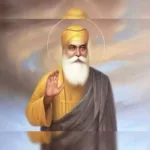The festive spirit in India begins with Navratri, honoring Goddess Durga, and leads to Dussehra, celebrating the victory of good over evil. This year’s Dussehra is on 12 October, paving the way for Diwali on 1 November, filled with vibrant preparations and traditions.

The festive season is finally upon us. On Thursday, India celebrated the first Navratri, one day after the end of Pitru Paksha. Now, during Navratri, the country will celebrate Goddess Durga over nine days, ending with the Vijayadashami or Dussehra, as it is commonly called.
Why is Dussehra celebrated in India?
Dussehra is celebrated across India to mark the victory of good over evil. It honors two significant legends: Goddess Durga‘s defeat of Mahishasura and Lord Rama‘s vanquishing of Raavan.
Mahishasura, a buffalo demon, terrorized the heavens until Durga, created by the gods, fought and slayed him, symbolizing the triumph of righteousness.
Also Read | October festivals 2024: Dussehra, Diwali and more – list of festivals
Similarly, Raavan, who abducted Sita, was defeated by Rama after a fierce battle, restoring dharma. The festival culminates in the burning of Raven’s effigies, celebrating the enduring spirit of virtue.
When Dussehra 2024’s date in India?
Due to dates in the Hindu calendar, there seems to be some confusion over the actual dates of Dussehra in India this year.
This year, Dussehra will start at 10:58 AM on 12 October and end at 9:08 AM on 13 October. It will be celebrated in most parts of the country on 12 October.
Days from Dussehra to Diwali
Dussehra sets the stage for the grand festival of Diwali, which will fall on 1 November. The days between these two festivals are filled with vibrant preparations. Homes are cleaned and adorned with colourful rangoli and marigold flowers, symbolizing the removal of negativity. Families visit markets to buy new clothes, sweets, and decorative items. In many regions of India, Ganesha idols are worshipped, celebrating his blessings before Diwali.
Dussehra is celebrated with great fervour and fanfare. In North India, it incorporates Ram Lila, a gala theatrical enactment of Rama’s life story. Effigies of Ravana—often along with those of Meghnada (Ravana’s son) and Kumbhkarana (Ravana’s brother)—are stuffed with firecrackers and set ablaze at night in open fields.
Ramayana, shorter of the two great epic poems of India, the other being the Mahabharata (“Great Epic of the Bharata Dynasty”). The Ramayana was composed in Sanskrit, probably not before 300 bce, by the poet Valmiki and in its present form consists of some 24,000 couplets divided into seven books.

The poem describes the royal birth of the god Rama in the kingdom of Ayodhya (Oudh), his tutelage under the sage Vishvamitra, and his success in bending Shiva’s mighty bow at the bridegroom tournament of Sita, the daughter of King Janaka, thus winning her for his wife. After Rama is banished from his position as heir to the kingdom through a palace intrigue, he retreats to the forest with his wife and his favourite half brother, Lakshmana, to spend 14 years in exile. There Ravana, the demon-king of Lanka, carries off Sita to his capital while her two protectors are busy pursuing a golden deer sent to the forest to mislead them. Sita resolutely rejects Ravana’s attentions, and Rama and his brother set out to rescue her. After numerous adventures, they enter into alliance with Sugriva, king of the monkeys, and, with the assistance of the monkey-general Hanuman and Ravana’s own brother, Vibhishana, they attack Lanka. Rama slays Ravana and rescues Sita, who undergoes an ordeal by fire in order to clear herself of suspicions of infidelity. When they return to Ayodhya, however, Rama learns that the people still question the queen’s chastity, and he banishes her to the forest. There she meets the sage Valmiki (the reputed author of the Ramayana) and at his hermitage gives birth to Rama’s two sons. The family is reunited when the sons come of age, but Sita, after again protesting her innocence, plunges into the earth, her mother, who receives her and swallows her up.
The poem enjoys immense popularity in India, where its recitation is considered an act of great merit. Little is known of Valmiki as a historical figure, though he is described as having been a thief named Ratnakara prior to becoming a sage. Many translations of the Ramayana into the vernacular languages are themselves works of great literary artistry, including the Tamil version of Kampan, the Bengali version of Krittibas, and the Hindi version, Ramcharitmanas, of Tulsidas. Throughout North India the events of the poem are enacted in an annual pageant, the Ram Lila, and in South India the two epics, the Ramayana and the Mahabharata, make up the story repertoire of the kathakali dance-drama of Malabar. The Ramayana was popular during the Mughal period (16th century), and it was a favourite subject of Rajasthani and Pahari painters of the 17th and 18th centuries.
The story also spread in various forms throughout Southeast Asia (especially Cambodia, Indonesia, and Thailand), and its heroes, together with the Pandava brothers of the Mahabharata, were also the heroes of traditional Javanese-Balinese theatre, dance, and shadow plays. Incidents from the Ramayana are carved in bas-relief on many Indonesian monuments—for example, at Panataran in eastern Java.
Dussehra or Vijayadashami – Why Do We Celebrate It?
Dussehra, also known as Vijayadashami or “the day of victory,” comes after the nine nights of Navratri. Sadhguru talks about the significance of the auspicious tenth day and how this occasion can bring success and victory into our life.
![[object Object] [object Object]](https://static.sadhguru.org/d/46272/1631020474-missionrevivingtradition20150210var0096-e0.jpg)
![[object Object] [object Object]](https://static.sadhguru.org/d/46272/1631020303-missionrevivingtradition20140925var0152-e.jpg)
![[object Object] [object Object]](https://static.sadhguru.org/d/46272/1631020317-missionrevivingtradition20150203bel0538-e.jpg)
ArticleNov 13, 2021
Sadhguru: Navratri, culminating with Dussehra, is a cultural festival of great importance and significance for all. It is a festival that is all about the goddess. In Karnataka, Dussehra is about Chamundi, in Bengal it is about Durga. Like this, it is about various goddesses in different places, but essentially it is about the feminine goddess or the feminine divinity.
Dussehra – The Tenth Day of Celebration
Navratri is replete with symbolism about vanquishing evil and wanton nature, and about having reverence for all aspects of life and even for the things and objects that contribute to our wellbeing. The nine days of Navratri are classified as per the three basic qualities of tamas, rajas and sattva. The first three days are tamas, where the goddess is fierce, like Durga and Kali. The next three days are Lakshmi related – gentle but materially oriented goddesses. The last three days are dedicated to Saraswati, which is sattva. It is related to knowledge and enlightenment.
Subscribe
Get weekly updates on the latest blogs via newsletters right in your mailbox.CountryIndiaUnited StatesAfghanistanAlbaniaAlgeriaAmerican SamoaAndorraAngolaAnguillaAntarcticaAntigua and BarbudaArgentinaArmeniaArubaAustraliaAustriaAzerbaijanBahamasBahrainBangladeshBarbadosBelarusBelgiumBelizeBeninBermudaBhutanBoliviaBosnia and HerzegovinaBotswanaBouvet IslandBrazilBritish Indian Ocean TerritoryBritish Virgin IslandsBruneiBulgariaBurkina FasoBurundiCambodiaCameroonCanadaCabo VerdeCayman IslandsCentral African RepublicChadChileChinaChristmas IslandClipperton IslandCocos [Keeling] IslandsColombiaComorosCongo – BrazzavilleCongo – KinshasaCook IslandsCosta RicaCroatiaCubaCyprusCzech RepublicCôte d’IvoireDenmarkDjiboutiDominicaDominican RepublicEcuadorEgyptEl SalvadorEquatorial GuineaEritreaEstoniaEthiopiaFalkland IslandsFaroe IslandsFijiFinlandFranceFrench GuianaFrench PolynesiaFrench Southern TerritoriesGabonGambiaGeorgiaGermanyGhanaGibraltarGreeceGuernseyGreenlandGrenadaGuadeloupeGuamGuatemalaGuineaGuinea-BissauGuyanaHaitiHeard Island and McDonald IslandsHondurasHong Kong SAR ChinaHungaryIcelandIndonesiaIranIraqIrelandIsraelItalyJamaicaJapanJordanKazakhstanKenyaKiribatiKosovoKuwaitKyrgyzstanLaosLatviaLebanonLesothoLiberiaLibyaLiechtensteinLithuaniaLuxembourgMacau SAR ChinaMacedoniaMadagascarMalawiMalaysiaMaldivesMaliMaltaMarshall IslandsMartiniqueMauritaniaMauritiusMayotteMexicoMicronesiaMoldovaMonacoMongoliaMontenegroMontserratMoroccoMozambiqueMyanmar [Burma]NamibiaNauruNepalNetherlandsNetherlands AntillesNew CaledoniaNew ZealandNicaraguaNigerNigeriaNiueNorfolk IslandNorthern Mariana IslandsNorth KoreaNorwayOmanPakistanPalauPalestinian TerritoriesPanamaPapua New GuineaParaguayPeruPhilippinesPitcairn IslandsPolandPortugalPuerto RicoQatarRomaniaRussiaRwandaRéunionSaint HelenaSaint Kitts and NevisSaint LuciaSaint Pierre and MiquelonSaint Vincent and the GrenadinesSamoaSan MarinoSaudi ArabiaSenegalSerbiaSeychellesSierra LeoneSingaporeSlovakiaSloveniaSolomon IslandsSomaliaSouth AfricaSouth Georgia and the South Sandwich IslandsSouth KoreaSpainSri LankaSudanSurinameSvalbard and Jan MayenSwazilandSwedenSwitzerlandSyriaSão Tomé and PríncipeTaiwanTajikistanTanzaniaThailandTimor-LesteTogoTokelauTongaTrinidad and TobagoTunisiaTurkeyTurkmenistanTurks and Caicos IslandsTuvaluU.S. Outlying IslandsU.S. Virgin IslandsUgandaUkraineUnited Arab EmiratesUnited KingdomUruguayUzbekistanVanuatuVatican CityVenezuelaVietnamWallis and FutunaWestern SaharaYemenZambiaZimbabwe
https://www.google.com/recaptcha/api2/anchor?ar=1&k=6LcjOCwaAAAAAE9OCSYsf2JJYsWjYr7iWAof6B4_&co=aHR0cHM6Ly9pc2hhLnNhZGhndXJ1Lm9yZzo0NDM.&hl=en&type=image&v=xds0rzGrktR88uEZ2JUvdgOY&theme=light&size=normal&badge=bottomright&cb=u7uupe2zatmSign Up
Vijayadashami – The Day of Victory
Investing in these three will make your life in a certain way. If you invest in tamas, you will be powerful in one way. If you invest in rajas, you will be powerful in a different way. If you invest in sattva, you will be powerful in a completely different way. But if you go beyond all this, it is no longer about power, it is about liberation. After Navratri, the tenth and final day is Vijayadashami – that means you have conquered all these three qualities. You did not give into any of them, you saw through every one of them. You participated in every one of them, but you did not invest in any one of them. You won over them. That is Vijayadashami, the day of victory. This brings home the message of how being in reverence and gratitude towards everything that matters in our lives leads to success and victory.
Dussehra – Devotion and Reverence
Of the many things that we are in touch with, of the many things that contribute in making and creating our lives, the most important devices that we employ in making a success of our lives are our own body and mind. Being in reverence towards the very earth that you walk upon, towards the air that you breathe, the water that you drink, the food that you eat, the people that you come in touch with and everything else that you use, including your body and mind, will lead us to a different possibility as to how we can live. Being in a state of reverence and devotion towards all these aspects is a way of ensuring success in every endeavor that we partake in.
Celebrate Dussehra with Joy & Love
Traditionally, in Indian culture, Dussehra was always full of dances, where the whole community mixed, met and mingled. But because of external influences and invasions over the past two hundred years, we have lost that today. Otherwise Dussehra was always very vibrant. Even now it is still so in many places, but it is being lost in the rest of the country. We have to bring it back. The Vijayadashami or Dussehra festival is of a tremendous cultural significance for all who live in this land – irrespective of their caste, creed or religion – and should be celebrated with gaiety and love. It is my wish and my blessings that all of you should celebrate Dussehra with total involvement, joy and love.
What is the myth of Dasara festival?
According to legends, Goddess Chamundeshwari or Durga slew the demon Mahishasura & so devotees visit the temple on Chamundi hills during this auspicious day. One of the significant Dussehra rituals is dedicated to the Goddess Saraswati. She is regarded as the Goddess of learning, arts & knowledge.
Why do we celebrate Dussehra in 5 lines?
Dussehra, also known as Vijayadashami, is an important festival of Hindus. It marks the victory of good over evil. On this day, Lord Ram is said to have defeated and killed the demon king Ravana. This epic battle symbolizes the victory of good and truth over evil and deceit.
What is the moral message of Dussehra?
A.1 Dussehra teaches us that good will always win over evil. It shows us the importance of truth and righteousness.
What is the motto of Dussehra?
May the triumph of good over evil in the epic of Ramayana inspire us to conquer our inner demons this Dussehra. On this Dussehra, let’s strive to be as virtuous and courageous as Lord Rama in our own lives. May the goodness of Lord Rama guide you towards righteousness and truth in all your endeavours.
What is the conclusion of Dussehra?
It took ten days of intense battle, putting the survival of every being in the universe at stake, but eventually, Devi, the Goddess, emerged victorious. The simple conclusion: “Good always triumphs over evil.” Yet, there is more to it. Dussehra exemplifies ultimate women empowerment.
f you are celebrating this Dussehra with your friends and family members, here are the top 10 best wishes, messages, and quotes to share with them.
Dussehra Festival: Top 10 best wishes, quotes, messages
- May the triumph of good over evil in the epic of Ramayana inspire us to conquer our inner demons this Dussehra.
- On this Dussehra, let’s strive to be as virtuous and courageous as Lord Rama in our own lives.
- May the goodness of Lord Rama guide you towards righteousness and truth in all your endeavours. Wishing you a blessed Dussehra!
- Let the celebrations of Dussehra bring happiness and harmony into your life, just as Lord Rama brought peace to the world. Happy Dussehra!
- On this auspicious day, may the divine blessings of Goddess Durga shower upon you, and may you be blessed with strength and courage. Happy Dussehra!
- May the victory of Vijayadashami fill your life with happiness, love, and success, and add sweetness to your life. A very happy Dussehra
- May your life be as bright and beautiful as the festival of Dussehra. Wish you a very happy Vijayadashami.
- Dussehra is a time for new beginnings and fresh starts. May this festival usher in a season of hope and positivity in your life. Happy Dussehra!
- Let the spirit of Dussehra inspire you to be kind, compassionate, and just. Wishing you a joyful and blessed Dussehra!
- May the Almighty’s blessings be with you on this Vijayadashami and lead you towards a life of righteousness. Wish you a very happy Dussehra!




